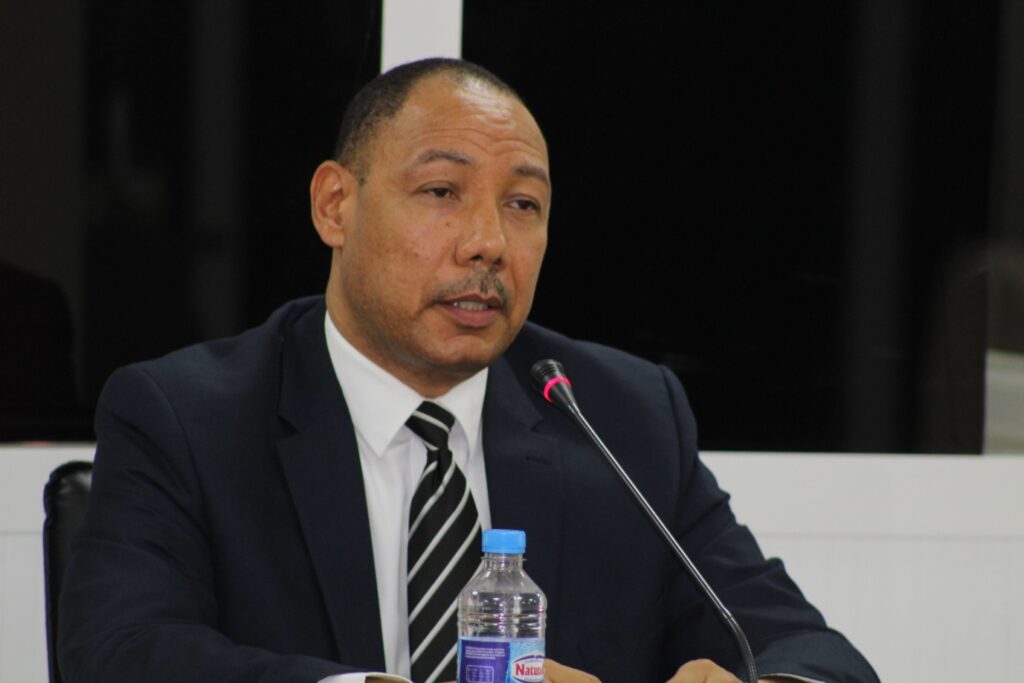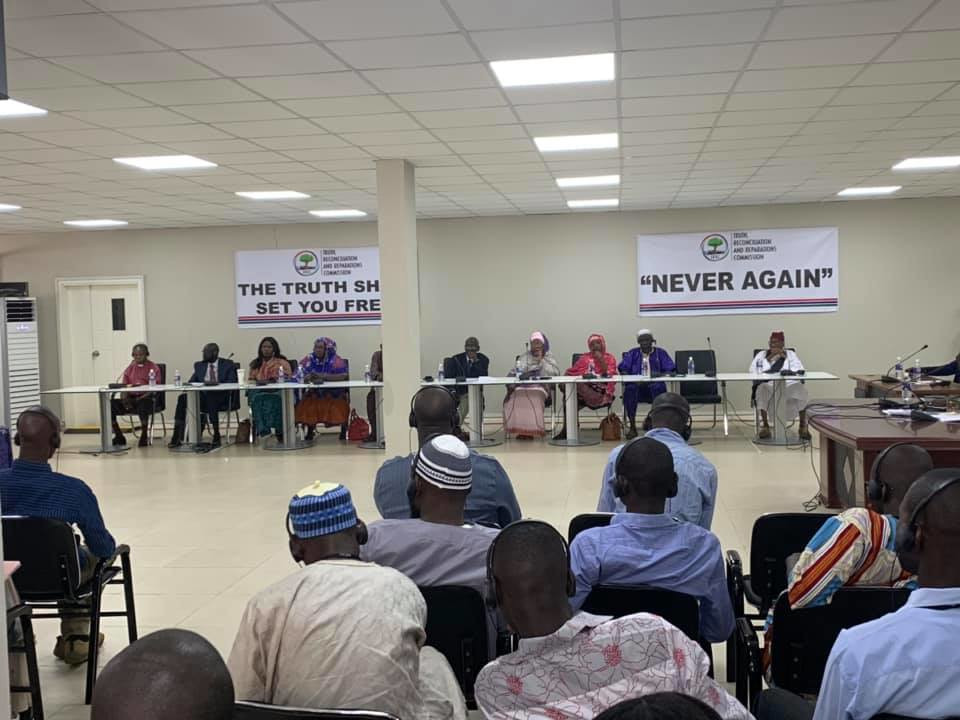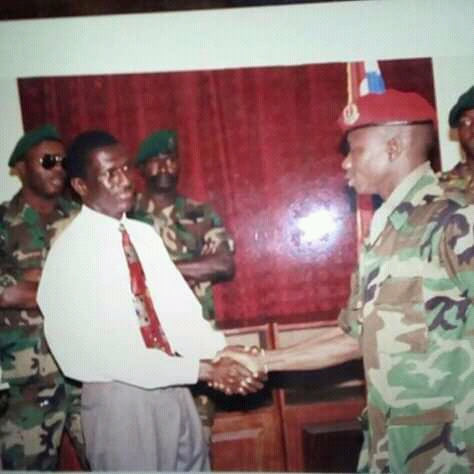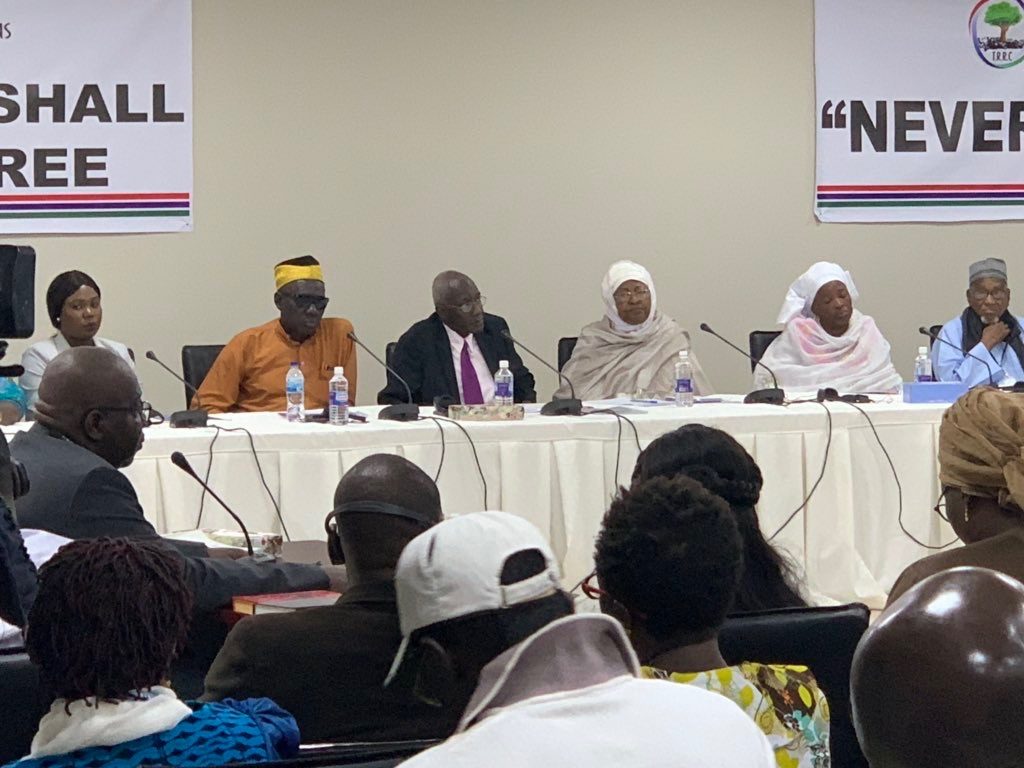
The TRRC’s ongoing public hearings have generated a number of interesting narratives in Gambian society. From the testimonies and statements of victims, alleged perpetrators and perpetrators emerge a narrative of brutal dictatorship, gross human rights violations, and the victimisation of hundreds of innocent Gambians.
This narrative reveals that under the previous regime, the rule of law was little more than just some words in the books. Many people were arrested, often for frivolous reasons, arbitrarily detained, tortured, and sometimes killed or disappeared without any due process.
The existence of such a regime of impunity may no longer be denied because of the confessions of perpetrators who were directly involved in the violations and the testimony of victims who suffered all manner of violations.
The TRRC public hearings have also generated a counter narrative that the Commission is a mere witch-hunt against former president Yahya Jammeh. A portion of this witch-hunting narrative has it that some witnesses appearing before the Commission are bribed or threatened to lie against the former president.
This narrative is clearly mistaken because by definition, to witch-hunt is to go after someone in a hostile manner out of mere suspicion, blatant impunity and just because you can. That is certainly not what the TRRC is doing. The TRRC is actively investigating twenty two years of real Gambian history, documenting the human rights violations that occurred during that period, identifying the various institutional, administrative, legislative and policy failures that made them possible, actively offering tangible, life changing service to victims, and generating within the Gambian public space a robust conversation on what happened here and how we must never allow its recurrence. These TRRC activities are clearly not reducible to mere witch-hunting.

It is a verifiable record of public interest that so far the TRRC has generated a wealth of historical material on several important events including the July 1994 coup, the November 11, 1994 incident, the January 1995 arrests of former AFPRC junta members Sanna Sabally and Sadibou Hydara, the June 1995 murder of former Finance Minister Ousman Koro Ceesay, the 1996 Denton Bridge incident involving UDP supporters and security forces, the April 10/11 2000 student demonstrations in which at least 12 children and one Red Cross volunteer were killed, violations against the media and the persecution of journalists including the December 2004 murder of Deyda Hydara, the activities of the Junglers, and circumstances surrounding the deaths and disappearances of many individual victims, among other things.
As we speak (October 2019), the Commission is hearing testimonies on sexual and gender-based violations as part of its ninth three-week session since hearings began on January 7, 2019. It is evident that the historical record emerging from the TRRC proceedings is an invaluable resource for both present and future generations of Gambians.
The primary material generated in the form of witness statements and testimonies, and the documents generated through the work of our Research and Investigations Unit also represent invaluable resources for future research on Gambian history or transitional justice processes.
The narratives coming out of the TRRC’s public hearings have clearly captured the imagination of both the Gambian public and the international community. The hearings have generated a national and international conversation about what happened in this country over 22 years of dictatorship, about the human capacity for cruelty and about the resilience of the human spirit in the face of unspeakable odds.
These narratives contain lessons that inspire ideas and raise important questions on the nature of the human mind and the often absolutely incomprehensible banality of atrocity.
As these narratives unfold, it has become shockingly obvious that in most cases of victimisation, the victims are totally innocent of any crime. Innocent people are arbitrarily arrested, detained, tortured under interrogation, and often killed without committing any crime whatsoever.
Entire communities are traumatised and whole families destroyed in the process, often reduced to abject poverty, permanent physical damage and unspeakable challenges of day to day survival. While these narratives may reopen old wounds, re-traumatise victims, traumatise the entire nation, they are also facilitating the conversations that need to happen for justice, national healing, reconciliation and the payment of reparations to happen.
But alongside these narratives is another narrative that adamantly refuses to see the relevance of the TRRC at all for Gambian society. This narrative has held, from the very inception of the TRRC, that this Commission is a joke, a circus, an exercise in futility, and a waste of scarce public resources.
Parts of this narrative even claim that the TRRC commissioners and staff are in it only for the money. It is further alleged that not only are they in it only for the money, they also engage in “dugalanteh” activities like bribery, corruption, and other shady deals in order to make even more money at the TRRC, deny victims justice, and facilitate freedom for perpetrators. This cannot be farther from the truth.
But while the money-making part of this narrative may easily be ignored, the notion that the TRRC is a joke, a circus, and an exercise in futility should not be entirely ignored. This notion got a temporary boost when the Junglers were released but somewhat dissipated when it became increasingly clear that it was the Ministry of Justice, not the TRRC that released the Junglers. The TRRC was neither consulted nor asked for its opinion before the decision was made to release the Junglers. The Commission understands that the Ministry of Justice used its own discretion to release the Junglers.
The narrative of the TRRC as a joke, a circus, and a money-wasting exercise in futility has gained surprising currency in recent days during and after Edward Singhateh’s appearance before the Commission. Public outrage at Edward Singhateh seems to morph into outrage against the TRRC for not having him immediately arrested and charged with the murder of Ousman Koro Ceesay.

Gambian social media circles are replete with strongly worded calls for the TRRC to have Edward Singhateh arrested or risk losing credibility. Some of these calls are clearly made by people who do not fully understand the mandate of the TRRC. Some of the calls, surprisingly, are made by Gambians familiar with the TRRC Act and the general workings of truth commissions. This public outrage is understandable. But outrage must not be allowed to trump reason, or inspire us to insist on the TRRC acting outside of its mandate or doing things that, in the final analysis, will seriously compromise its work.
Some of those who insist that the TRRC must have Edward Singhateh arrested cite the case of Yankuba Touray to emphasize their point. If the TRRC could have Yankuba arrested they argue, why not Edward? The answer is that the TRRC had Yankuba Touray arrested because he was subpoenaed, reluctantly appeared before the Commission, but refused to testify, earning himself the charge of contempt. He was not arrested because he lied to the Commission.

And the TRRC did not recommend or participate in the subsequent charges of murder brought against Yankuba Touray. That again, was done by the Ministry of Justice exercising its prerogative. If Edward Singhateh was subpoenaed, appeared and refused to testify, the TRRC would have certainly ordered him arrested and charged with contempt for the Commission. Whether he would then subsequently be charged with murder would have been at the discretion of the Ministry of Justice.
While the TRRC by its very nature cannot have Edward or any witness arrested for lying before the Commission, it does not mean that lying before the Commission constitutes any less of a crime, or that witnesses who lie will get away with it.
The Commission is in the middle of its evidence-gathering phase and investigations on all human rights violations, including investigations into the murder of Ousman Koro Ceesay and others are open and ongoing.
At the end of the Commission’s work, recommendations to prosecute those most responsible for human rights violations will certainly be made, and any lies told by any witness will be cited among the reasons for their prosecution.
It must be admitted that people skeptical of the eventual prosecution of perpetrators by the Gambia Government have a rich fund of historical precedents to cite. It is true that truth commission recommendations in general are not famous for being implemented by governments. Even in widely cited cases of truth commission success stories like the South African TRC, many of the commission’s recommendations especially on reparations are yet to be implemented two decades later.
A recent report indicate that over 300 cases of Apartheid era deaths, disappearances and other violations remain unsolved in South Africa two decades after the TRC. In Sierra Leone, an estimated $300 million or more was spent on setting up a special court to try perpetrators as part of that country’s transitional justice process. The court ended up convicting only nine perpetrators, including former Liberian president Charles Taylor and others from parties to civil war atrocities like the Armed Forces Revolutionary Council (AFRC), the rebel Revolutionary United Front (RUF), and the Civil Defense Forces (CDF).
Certainly, the number of perpetrators and the scale of human rights violations in South Africa and Sierra Leone cannot be compared to that of The Gambia, however bad our own situation.
Ultimately, it would be for the citizens of every country to hold their governments accountable and insist on the implementation of truth commission recommendations. And with the mushrooming culture of the Gambian public’s tendency to hold their government accountable, that eventuality may well be anticipated in this country after the submission of the TRRC recommendations.
But for now, TRRC investigations into the murder of Ousman Koro Ceesay and other human rights violations are open and ongoing. And so it would be premature for the Commission to order the arrest of any witnesses on suspicion of lying under oath or before the Commission.
By Baba Galleh Jallow











Recent Comments